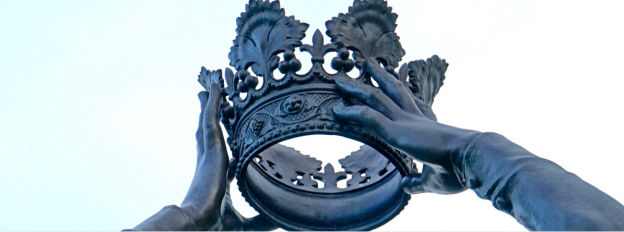People tend to remember the high notes of history. Chances are in school you learnt about key historical events like World War 2, the Industrial Revolution, the American Revolution, or The War of the Roses. Chances are you never learnt much about the Thirteenth Century Baltic. Something happened. It became important later. But it was no War of the Austrian Succession, let alone World War 1. Much of life is like that really, and our history books tend to major on the majors.
The Book of Judges is not like your standard history book. While it covers the high and low points of the Judges period of Israel’s time in the Promised Land, it also majors on the minors. Immediately following the account of Abimelech, two minor Judges are covered. They remind us that the highs and lows of life are interspersed with the mundane, that God rebuilds what he tears down, and a reminder that this side of eternity we are still tempted to build our own kingdoms, even when doing God’s work.
Abimelech was a disaster. Much like a certain European leader of the 1930s and 1940s, he left a trail of death, destruction, and ruins in his wake. While previously God used external forces to punish Israel for their apostasy, Abimelech was an example of disaster and punishment from the actions of those within.
In the absence of Abimelech, a leaderless Israel may have been absorbed by the surrounding nations. That did not fit God’s salvation plan, or his promises to his people.
Instead, God demonstrated his goodness to his people by rebuilding what he had torn down through Abimelech. “After Abimelech there arose to save Israel Tola the son of Puah, son of Dodo, a man of Issachar” (v.1). The first two words are important – Abimelech was not the end.
We know little of Tola, apart from his father and grandfather, that he came from the tribe of Issachar, and that he lived and died in an otherwise unknown town in the hill country of Ephraim (vv.1-2). We do not know what battles he fought, though we assume he fought some. We do know that he judged Israel for 23 years, before he died and was buried in his hometown (v.2).
In many respects, Tola is a footnote to history, who may not even be otherwise mentioned. But Tola restored the stability that Abimelech tore down. Tola judged Israel, which means he helped save Israel.
The second Judge mentioned is Jair. Jair was from Gilead, on the other side of the Jordan River (v.3). Jair judged Israel for 22 years, likewise bringing stability to Israel.
Jair appears to have held influence throughout Israel through his thirty sons (v.4). We must be careful here. The Bible makes it clear that sons are a heritage from God, and a man is blessed when he has plenty of them (Psalm 127:3-5). Jair was certainly very blessed.
Yet to have achieved this number, plus an unspecified number of daughters (since the odds of only 30 sons is in the multiple thousands), Jair must have had a number of wives. Like Gideon, which Judges noted with a hint of disapproval (8:30) because of Gideon’s king-like tendencies (even if he refused the title).
Secondly, Jair’s sons all rode donkeys (v.4). Donkeys were a sign of nobility and wealth in those days (the common folk walked). Jair had wealth and resources, and through his sons led Israel. Eventually, Jair left that behind when he died and was buried in Kamon (v.5).
This is not to suggest that Jair’s wealth was illegitimate. There is no strong accusation against Jair, or the suggestion that his rule over Israel was anything but benign. But the text does suggest that Jair and his family started to take on some of the trappings of kingship without the title, just as Gideon had done previously.
These two minor characters in Judges remind us that God is present in the mundane of life. Not everything is (thankfully) the high of Gideon routing the Midianites or the low of Abimelech rampaging. Plenty of the time, it seems like nothing much is going on. But God is still working in and through people in those times, advancing his plans.
Secondly, this passage reminds us of our tendency to the trappings of kingship, even while doing the Lord’s work. This side of eternity, we must fight our sinful tendency to self-rule and mastery. To show our status and gain influence, to be recognised for our talents. Even as servants in the Church and God’s Kingdom. Only Jesus is truly king.
Thirdly, God rebuilds what he tears down. Abimelech left a mess, but Tola cleaned it up. Jair continued the work. While God is bringing judgement on this earth, now perhaps provisionally but one day climactically on the Great Day of God and The Lamb, God restores. God rebuilds so his people continue on. Whether through new administrations rising, or at the end of history when God makes all things new. God restores and rebuilds.

